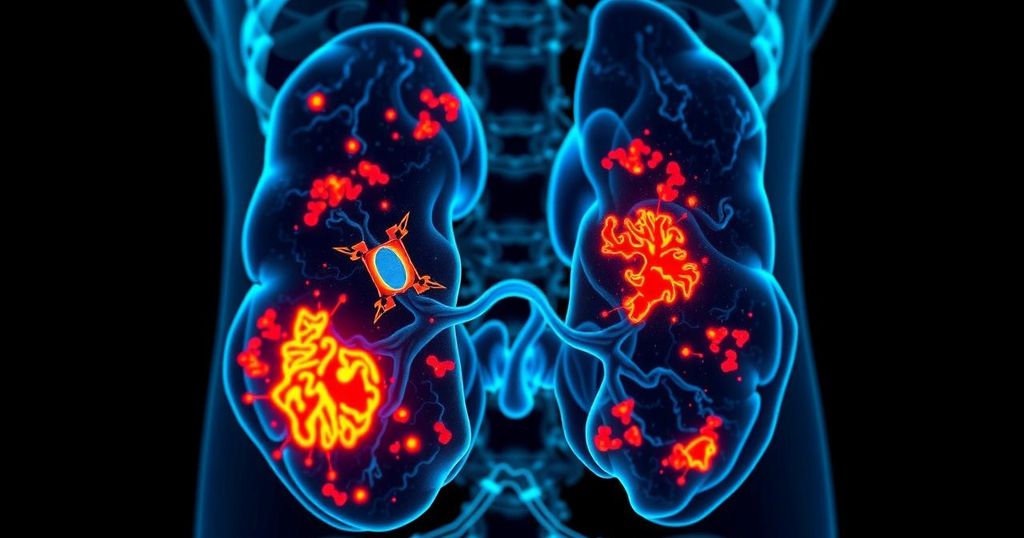A Essen-based research team, led by Dr. Christopher Darr and Prof. Dr. Ken Herrmann, is investigating the effectiveness of PSMA-PET imaging in enhancing the surgical removal of urological tumors, especially prostate cancer. Undertaken with support from the German Research Foundation, the study will assess the imaging technique’s reliability during operations scheduled for early 2025, involving 120 patients. The ultimate goal is to improve surgical outcomes and reduce the rate of cancer recurrence.
A research team from Essen, led by Dr. Christopher Darr and Prof. Dr. Ken Herrmann, is conducting a study to evaluate the reliability of a specialized imaging technique for the removal of tumors related to urological cancers, particularly prostate cancer. The project, funded by the German Research Foundation, will support the Medical Faculty of the University of Duisburg-Essen (UDE) with a grant of 307,000 euros until 2027. Prostate cancer is the most prevalent cancer among men in Germany, and there is an urgent need for effective methods to ensure complete tumor removal during surgical procedures. The study focuses on utilizing Positron Emission Tomography (PET) with prostate-specific membrane antigen (PSMA) ligands to improve cancer localization. It is hypothesized that the integration of PSMA-PET during operations may enhance healing outcomes. The upcoming study, commencing in early 2025, will involve 120 adult patients diagnosed with prostate, renal cell, or urothelial carcinoma. They will undergo PSMA-PET imaging prior to surgery to analyze tumor spread, with immediate assessments of removed tissue samples to determine the risk of recurrence. Dr. Darr states, “In our project, we evaluate how well this novel imaging can be implemented in the surgical context and the accuracy of the results it provides.” This approach aims to address the challenge that currently, approximately 30% of prostate cancer patients experience tumor recurrence due to the limitations of existing surgical monitoring techniques.
Urological tumors rank among the most common solid tumor types in Germany and are characterized by abnormal tissue growth that can lead to severe health consequences. Prostate cancer specifically stands out as the most frequently diagnosed malignancy in men, underscoring the need for improved surgical strategies. Traditionally, the complete removal of tumors during operations is a paramount objective, yet there exists no established, flawless method to confirm the complete resection of a tumor during the surgery, which is critical for preventing recurrence.
In conclusion, the study being conducted by the research team at the University of Duisburg-Essen represents a significant advance in the effort to improve surgical outcomes in prostate cancer treatment. By integrating PSMA-PET imaging into surgical procedures, the researchers aim to refine tumor localization and ensure comprehensive tumor removal. This innovative approach could potentially pave the way for higher success rates in combating prostate cancer among patients.
Original Source: healthcare-in-europe.com

Leave a Reply